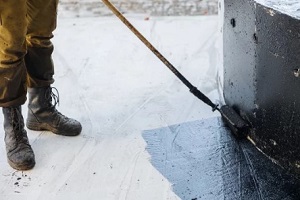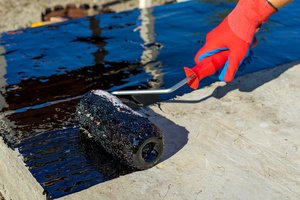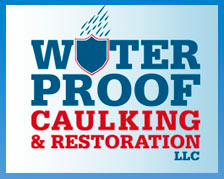 Delaware is home to weather of all sorts—from heavy rain to deep snow, commercial buildings in the state see it all each year. Structures that have not undergone a waterproofing service are vulnerable to numerous types of structural damage, from moisture infiltration that generates thick, hazardous mold to rotting interior wood framing and deep cracks in exterior masonry.
Delaware is home to weather of all sorts—from heavy rain to deep snow, commercial buildings in the state see it all each year. Structures that have not undergone a waterproofing service are vulnerable to numerous types of structural damage, from moisture infiltration that generates thick, hazardous mold to rotting interior wood framing and deep cracks in exterior masonry.
These problems can threaten the stability of the building and may be costly to repair, which is why it is wise to invest in comprehensive waterproofing before issues arise.
However, each building is unique—the soil composition, location, weather, age, and more all impact which waterproofing solution is best for a commercial structure. This is not a decision to be made on your own.
Instead, it is best to work with industry experts to discover which type of Delaware commercial waterproofing solution is right for your building. Here are some of the most common options.
Blindside Waterproofing
If you have the luxury of tackling a waterproofing project while the commercial building is still under construction, one of the best options is blindside waterproofing. This waterproof membrane is installed below grade, directly against the soil support of the structure before the foundation is poured.
This enables the waterproofing solution to address some of the most common areas of risk right from the beginning, and this area is typically unreachable once a structure’s construction is completed.
Blindside waterproofing provides a comprehensive start that will protect the foundation and inner workings of the building against water damage, but it is not an option for structures that are already built. Fortunately, many options are available if your building is out of the construction stage.
Above-Grade Spray Polymer
The term “above-grade” refers to waterproofing solutions that are installed above the level of the soil. This is in contrast to other options such as blindside waterproofing, which are added below the soil level near the foundation.
Commercial structures can benefit from above-grade solutions because the sides of a building—especially near the ground—will see frequent moisture accumulation from rain puddles, piles of snow, and more.
In this solution, a polymer compound is sprayed onto the exposed surfaces of the building. It clings to the structure and bonds with it, lasting for many years. Spray polymer is breathable because structures will gradually release moisture vapor outward, and trapping this moisture against the sides of the building will only cause further problems.
Instead, the polymer allows vapor to escape from inside while simultaneously preventing moisture from penetrating inward.
Membrane Waterproofing
Multiple types of membranes are available to roll onto the exterior of a building. Many of these membranes are also made of polymers, though they are applied using rollers and other tools instead of a sprayer and canister. One of the most common options is a bituminous membrane, which is composed of asphalt, stabilizers, and even polyester or fiberglass to reinforce the final product.
Bituminous membranes are highly resistant to the UV rays created by the sun, so they can stand up to stress in outdoor conditions. They are also durable, so they can be used on areas like flat roofs where people may walk on them. Rolls of bituminous membrane are affordable and easy to install, so they are a top choice for large commercial structures throughout Delaware.
Thermoplastic Applications
 Like bituminous membranes, thermoplastics are also typically installed in rolls and are backed by polyester or other fibers to create a strong, hardy material.
Like bituminous membranes, thermoplastics are also typically installed in rolls and are backed by polyester or other fibers to create a strong, hardy material.
The primary difference is that unlike bituminous membranes, which are made of asphalt, thermoplastic membranes are crafted from flexible plastic components. Plastic serves as an excellent water barrier, and the commercial waterproofing membranes may be made of polypropylene, ethylene propylene, polyolefin, or a combination of these materials.
If installed in multiple layers, thermoplastics are some of the most durable options for waterproofing a commercial building in Delaware. A high-quality installation can last more than 20 years, and it is best installed in areas where it will not be disturbed so that it does not accidentally sustain damage like punctures or tears.
Speak with the Experts to Discover the Ideal Solution for Your Building
Delaware commercial waterproofing should be a process that is just as unique as your building. What works for one structure may not have much of an effect elsewhere, which is why it is critical to work with a skilled professional waterproofer who can create a personalized plan for keeping the moisture out of your building.
The experts at Waterproof Caulking & Restoration have completed this process for dozens of commercial clients in Delaware. Contact us to learn more about the waterproofing solutions we offer or schedule a consultation to start the process of waterproofing your building.
